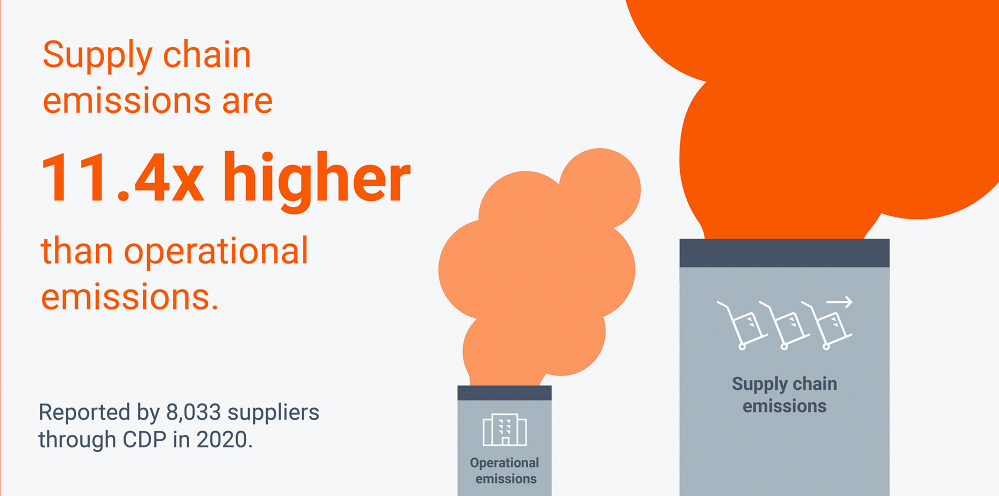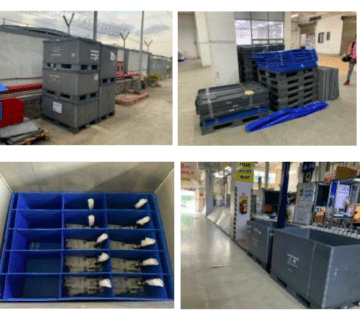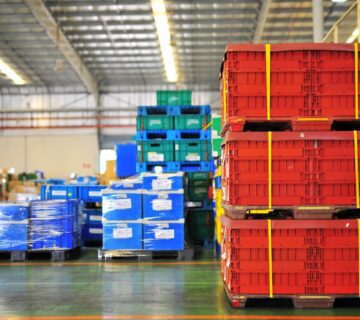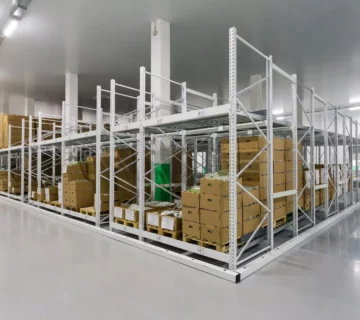Reducing Carbon Footprint with Returnable Packaging in India
As India continues to be one of the fastest-growing economies in the world, so does its consumption of natural resources, leading to increased carbon footprint. One way companies can reduce their impact on the environment is by adopting returnable packaging systems. Returnable packaging refers to the reuse of packaging materials, such as pallets, crates, and containers. By using returnable packaging, businesses can significantly reduce waste, lower their carbon footprint, and meet their environmental goals.
Sorry, what is returnable packaging again?
Returnable packaging is a closed-loop system, where the packaging materials are designed to be reused several times before being recycled or disposed of. With returnable packaging, companies reduce waste, save energy, and lower their carbon footprint. The benefits of returnable packaging are clear – it is more sustainable, cost-effective, and efficient than traditional packaging methods.
In India, the packaging industry is growing rapidly, with an expected growth rate of 20-25% each year, leading to increased packaging waste. According to a report by the Central Pollution Control Board India generated 26,000 tons of plastic waste per day in 2017, and only 60% of this waste is collected and recycled. By using returnable packaging, companies can contribute to the reduction of packaging waste in India and lower their carbon footprint.
Returnable packaging also reduces the use of single-use materials like cardboard and plastic. Single-use materials are responsible for a large proportion of waste and pollution across the world. In India, the packaging industry accounts for around 40% of plastic consumption, making it one of the significant contributors to plastic pollution. By contrast, returnable packaging systems, which are designed for long-term use, reduce reliance on single-use packaging materials and, therefore, decrease waste and pollution.
Returnable packaging furthermore reduces the environmental impact of transportation. By using long-lasting, reusable packaging materials, companies can transport their goods using fewer trips, resulting in lower fuel consumption and, therefore, fewer emissions. According to the India Brand Equity Foundation, the Indian logistics sector generates around 22% of the country’s total greenhouse gas emissions, with road transport being a significant contributor. Returnable packaging reduces the frequency of transportation and, as a result, reduces the carbon footprint of companies.
Some examples…
An example of returnable packaging in action in India is found in the e-commerce sector. With the growth of online shopping, e-commerce companies are increasingly using returnable packaging materials. Companies like Myntra have introduced a reusable packaging system that is durable, waterproof, and tear-resistant, eliminating the need for plastic bags and reducing the amount of packaging waste. The returnable packaging system also reduces transportation costs, with the boxes being returned to the warehouse for reuse, reducing the frequency of transportation and facilitating more efficient transport.
Another example is the dairy industry in India, where reusable containers are used extensively for transporting milk. Traditionally, milk was transported in single-use plastic bags, which not only led to an increase in plastic waste but also resulted in loss of quality, as the bags easily tore, leading to spoilage of milk. However, with the introduction of returnable packaging systems, milk can now be transported in airtight, reusable containers. The containers can be collected from customers by milkmen, cleaned, and reused – reducing waste and lowering the environmental impact of transportation.
But, does it even make any economic sense?
Returnable packaging also provides economic benefits for companies in India. While there may be an initial investment in the purchase of reusable containers, returnable packaging systems are more cost-effective in the long run, as they reduce the need for new packaging materials, reduce transportation costs, and improve efficiency in the supply chain. For example, in the automobile industry, using returnable containers reduces logistics costs by up to 25%, according to a report by Accenture. Improving efficiency in the supply chain further boosts the economics of the system, with timely delivery rates increasing, inventory management improving, and costs reduced.
Closing the loop
To conclude, returnable packaging must become an integral part of any business looking to create a sustainable supply chain operations and meet their environmental sustainability goals. In India, the need for returnable packaging is urgent, given the increasing consumption of resources and the need to reduce plastic waste. The advantages of returnable packaging are clear- it reduces waste, lowers reliance on single-use materials, lowers transportation emissions and offers economic benefits. With the rising demand for environmentally sustainable practices, adopting returnable packaging systems can give companies a competitive advantage and improve their reputation among customers. Companies in India must prioritize adopting sustainable processes for their packaging systems, including adopting a returnable packaging system, and fulfilling their commitment to a sustainable, better future.
Yantra Packs Insights: Returnable packaging emerging as the future of packaging with increasing demand for sustainability
The concept of returnable packaging has been around for a while, but it has gained significant traction in recent years. As consumers become more aware of their carbon footprint, companies are looking for ways to reduce their impact on the environment. Returnable packaging is an effective solution for achieving this goal.
Yantra Packs is a returnable packaging pooling solution, providing businesses with a cost-effective, sustainable option for their packaging needs. The company offers a range of packaging solutions, including plastic crates, pallets, foldable crates, and containers. Yantra Packs’ services include tracking, cleaning, and repairing the packaging, ensuring that it is always in top condition, reducing damage and enhancing safety levels through the supply chain.
Yantra Packs’ business model focuses on creating a closed-loop supply chain, which eliminates waste and reduces carbon footprint. The company collects its packaging products from customer sites and distributes them to other customers, facilitating smoother logistics, storage, and transportation. Yantra Packs ensures that its packaging materials are always in excellent condition for reuse, which reduces the need for new packaging materials and reduces the cost, time, and labor required for handling packaging waste.
Yantra Packs is part of the sustainable packaging movement that is taking the world by storm. With more and more companies prioritizing sustainability, Yantra Packs has found its niche in returnable packaging, providing a highly efficient and cost-effective system that helps businesses reduce their environmental impact. The company’s approach to packaging is sustainable, innovative, and practical, and their path is set to take on a more important role in coming times. As the future of packaging, returnable packaging is here to stay, and Yantra Packs is at the forefront of this sustainable packaging revolution.
If you are a user of secondary packaging in an industrial supply chain use-case, Yantra Packs can help you achieve sustainability along with optimisation of cost. Wish to know more? Contact us here.





No comment